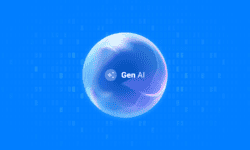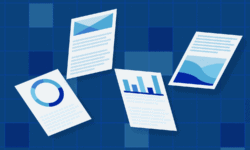It is estimated that firms lose up to $1.3 million a year as a result of inefficient processes that impact employee productivity. According to a Mantis Research report, while we are a few years into digital transformation, only 4% of firms have fully integrated a digitized workplace. Even worse, more than half of the knowledge workers surveyed spend at least two hours a day on repetitive tasks.
The statistics are staggering, both from a monetary cost and human capital perspective. Beyond impacting productivity and wasting money, knowledge inefficiencies also pose reputational risks. When research is inaccessible, it is replicated and time is squandered searching for intellectual property that may or may not already exist. The inability to pivot strategically as a result of these inefficiencies is a costly risk for firms.
Perhaps the most costly byproduct of knowledge inefficiency is the loss of talent. In the investment space, analysts are tasked with conducting research and analysis under tight timeframes. The accuracy and depth of insights this research generates is key to framing investment recommendations and influencing critical decisions.
Knowledge decentralization poses a considerable risk to talent retention through employee burnout, frustration, boredom with repetitive tasks, and a lack of proper resources. When employees are disengaged, the likelihood of turnover is high. Replacing and onboarding new employees is an exercise equally constraining time and resources.
Below we will dive into some of the existing challenges to analyst workflow, the risk to talent and turnover, and how firms can prevent analyst turnover by empowering employees with generative AI (genAI) tools that streamline internal knowledge with leading market intelligence.
Challenges to Analyst Workflow
Traditional analyst workflow prior to the advent of genAI was (and still largely is) widely plagued with inefficiencies. Analysts are tasked with conducting robust research, due diligence, and valuation tasks within short timeframes and with inadequate resources. These activities are often inherently repetitive, time-consuming, and yield limited insights relative to the amount of effort they require.
Research findings—and the high-stakes recommendations and investment decisions they fuel— are often procured from multiple sources of information and platforms in a manual way. Analysts battle their way through information silos with limited or inaccurate insights, resulting in the duplicity of work.
Under pressure to complete research and due diligence in a thorough and timely manner, analysts face fatigue, frustration, and increased detachment from their roles. Inefficient workflows coupled with growing apathy and feelings of disconnection can result in subpar performance, and ultimately affect the quality of findings and investment recommendations.
Onboarding new hires in this workflow naturally compounds the team’s inefficiencies even further, and positions the new employee to face the same challenges as their more seasoned colleagues. The true learning curve is steeper out of the gates.
Increasingly, asset managers are prioritizing “operational alpha” as a means of realizing savings outside of the investment portfolio by improving processes and workflow. Certainly revamping analyst workflow can be a key tenet of this effort provided how central it is to the investment function.
The Risk of Talent Loss
According to a recent report published by PwC, 88% of executives struggle to capture value from their technology investments. Without the proper roadmap for successful implementation, it is no surprise that firms may not prioritize tech stack enhancements such as genAI. The element of unknown, as well as the lack of organizational planning, hinder employees from access to the proper tools and resources to ensure success in their roles.
Findings show that the cost to replace a departed employee is one-half to two times the employee’s annual salary. This is a steep fiscal loss, in addition to the potential loss of intellectual property, sensitive information, and individual knowledge. A highly specialized analyst may be one of a few (or the only one) well versed and up-to-speed on certain processes and systems unique to their role, with knowledge of where they exist internally.
Inaccurate and/or incomplete findings brought on by knowledge inefficiencies also pose reputational risk for a firm. Research intelligence, data, and market analysis that is impacted potentially places decisions around portfolio positioning, dealmaking, fundraising, and allocations at risk, affecting client portfolios and potential investments.
Streamlining Efficiencies to Combat Talent Attrition
Often, analyst workflows are plagued with inefficiencies created by internal research and external content spread across disparate systems and teams working in silos. Critical components of a firm’s market intelligence—internal research, investment memos, client deliverables, strategy presentations, and meeting notes—are fragmented and inaccessible, resulting in lost opportunities and doubled work.
As a result, firms lose the ability to swiftly pivot in response to market conditions and struggle to maintain a competitive edge. And equally detrimental— analysts get burned out trying to find a needle in a haystack, in a high stakes, time-sensitive environment.
Tools like AlphaSense’s Enterprise Intelligence solution solve this challenge, unlocking the value of your firm’s prized internal knowledge using generative AI.
Our purpose-built AI searches, summarizes, and interrogates your proprietary internal data alongside a vast repository of 300M+ premium external documents to surface the most valuable insights. It allows you to automatically integrate and tag your PDFs, SharePoint documents, CIMs, Excel sheets, and more. You can also interrogate long documents with natural-language chat that goes straight to the source to surface the most relevant insights.
With our Enterprise Intelligence solution, analysts can instantly discover and verify insights while removing inefficiencies, potential blind spots, and reputational risk. When equipped with the in-house intelligence and knowledge they need, firms can empower analysts to be successful and effective in their roles, retain engaged employees, and significantly reduce talent attrition.
Competitively Position your Team with AlphaSense
AlphaSense’s leading AI-search driven market intelligence platform equips you with the insights, market intelligence, trends, and expert opinions to remove the complexity and guesswork of conducting your research. Paired with our Enterprise Intelligence solution, unlock and integrate your firm’s valuable internal knowledge seamlessly and with ease, for the most comprehensive internal and external knowledge set.
Learn how our industry-leading genAI platform can help you sift through the noise, accelerate your research, and bring efficiencies to your workflow.
Checklist: 4 Best Practices to Unlock Value from your Firm’s Internal Knowledge
Harness the power of genAI and competitively position your team—start your free trial of AlphaSense today.




